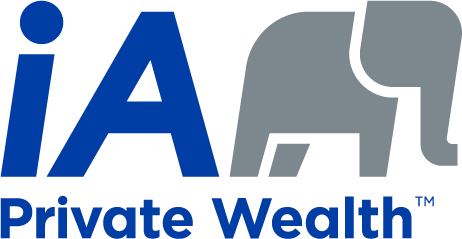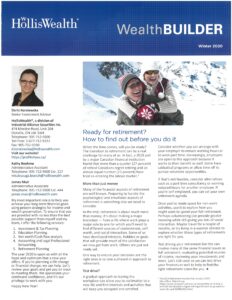Our Correspondence
November, 2022
September was another tough month for equities after the Fed reiterated it would continue its monetary tightening path for as long as it takes to get inflation back under control. End of October showed some recovery, but even though there are promising signs inflation may have peaked, we are “not out of the woods yet”. A clearer indication will be once we achieve a few months of declining inflation. Markets will likely stay choppy until then, but the hope is that the worst is behind us. Here’s a summary of the events that steered the markets.
Before I list more statistics about our economy, I would like to address another issue that came up in the recent months. A few years ago, I asked all my clients to search their safety deposit boxes and their safes and locate their (and their parents) share certificates. Many of you did find them, and we were able to successfully deposit them in your accounts. Recently some of my clients were processing Estates of their parents and located additional certificates. While the large companies (such as Bell, Telus or Canadian banks) are usually easy to process, that is not the case for all of the certificates. Some smaller companies will go bankrupt, some will go through mergers and acquisitions. We have a process in place, and we can help with those situations. But sometimes, we find out, that our clients missed out on large payouts. This happens when a company was purchased by a private company, or all shares were bought out and moved to a private ownership. In such situations, the payout is held in trust by a transfer agent to be collected by the share holders. Usually there is a specific timeframe to claim that cash (can be 5-10 years). We had situations where thousands of dollars were lost, because the share certificates were found too late, and the deadline has past. I would like to urge you to search for your old share certificates (and those of your other family members; many elderly investors, still own certificates) and to deposit them to your respective investment accounts. If someone does not have a brokerage account, another option is to sign the share certificate over to someone – a friend or relative, for example – who already has a brokerage account. On the back of the certificate there should be a power of attorney transfer form, which you would fill out to authorize the transfer. If you have any follow up questions about this process, please don’t hesitate to call us.
COVID-19 and market developments
- There were a number of positive U.S. and Canadian economic indicators. U.S. job creation remained solid and jobless claims fell. In Canada, job vacancies grew in September, house prices continued cooling and the CEOs of two major grocery chains said food prices have started stabilizing.
- Many central banks followed the Fed in hiking rates, including the Bank of England, European Central Bank, the Nordic central banks, and the Swiss bank which ended its negative rate policy.
- The Canadian federal government lifted its COVID-19 travel restrictions including mandatory vaccinations, testing and quarantine of international travelers and masking on planes and trains.
- The decline of oil price from $124 in early March (in September falling under US$80 a barrel, but going to $90 in October) most likely will slow demand and inflation.
- There are other signs of easing inflation. According to Carpages.ca, used vehicle prices are on the decline across Canada, dropping more than six per cent after peaking during the first half of this year. Same goes for cargo containers, the data shows a significant drop in the average per unit rates from China. Canada is leading the fall with a 49.4% drop in the leasing rates between June and July. Right behind Canada is the US with a 32.5% drop. Finally, we had significant decline in home prices in Canada.
- S. inflation in September eased for the second month in a row, from 8.5% to 8.3%, although this was considered disappointing by investors as forecasts were for a drop to 8.1%.
- In Canada, inflation also moderated for the second consecutive month, from 7.6% to 7%, which was much lower than expected. This was again largely due to falling gasoline prices which mitigated the cost of groceries remaining high. Aligning with the Fed, the Bank of Canada increased its benchmark rate 0.75% to 3.25%. Its official statement also made clear more hikes are required to curb inflation.
- In October’s Monetary Policy Report, the Bank of Canada lowered its outlook for inflation and economic growth, primarily due to weakening demand and lower oil prices.
- In an early estimate, StatsCan reported the Canadian economy may have grown by 0.1% in September, which would translate to a quarterly return of 0.4% in the third quarter. Based on a preliminary estimate, the U.S. economy expanded in the third quarter at an annualized pace of 2.6%, after two straight quarters of falling growth. The jump was higher than the 2.4% increase economists expected.
How does this affect my investments?
The focus continues to be on central bank policy and the impact this has on markets and the broader economy. While volatile, the current investment climate does offer buying opportunities for active fund managers and investors. Your mutual fund managers took advantage of price misplacement and readjusted your investments. Economic fundamentals also remain healthy and supply chains are normalizing. In time, a sustained recovery will occur, and history has proven investors are rewarded over the long-term.
Regardless of where we are in the market cycle, it’s important to take a disciplined approach to investing and stay focused on your long-term goals. You hold diversified investments which reduce risk. We are here to support you in achieving your financial goals. Please do not hesitate to contact us.
This letter was prepared solely by Daria Koralewska who is an Investment Advisor of iA Private Wealth Inc. and does not necessarily reflect the opinion of iA Private Wealth. The information contained in this newsletter comes from sources we believe reliable, but we cannot guarantee its accuracy or reliability. The opinions expressed are based on an analysis and interpretation dating from the date of publication and are subject to change without notice. Furthermore, they do not constitute an offer or solicitation to buy or sell any of the securities mentioned. The information contained herein may not apply to all types of investors. The Investment Advisor can open accounts only in the provinces in which they are registered. We used various sources, including Globe and Mail National Post, Bloomberg, Investment Executive, Advisor’s Edge, CP24, Reuters, Bloomberg, Bank of Canada and Statistics Canada as at various dates. Market conditions may change which may impact the information contained in this document. Before acting on any of the above, please contact me for individual financial advice based on your personal circumstances.
April, 2022
We had a rough start to 2022 year, that resulted in some decrease in your returns in the first 3 months of 2022. Russia-Ukraine tensions, oil prices, inflation, supply chain disruptions and central bank policy continued to weight on the minds of investors. After a stressful start, there were signs in March that markets are rebounding. More rate hikes are coming to combat inflation, which will likely remain high in Q2, but should cool later in the year as supply chains normalize, prices ease and hopefully peace is restored in Ukraine. After the record-breaking double digit returns of 2021 it’s inevitable the pace of growth will be slower this year. However, economic fundamentals and corporate earnings remain healthy, and the post-pandemic recovery continues.
Here’s a summary of the notable events that steered the markets.
COVID-19 and market developments
- S., Canadian and global equities posted gains in March but were mixed YTD with U.S. and global stocks in the red while the energy-rich TSX Composite Index benefited from the market turbulence.
- Ontario lifted its COVID-19 mask mandates for most public spaces including shops, schools, bars and gyms. Face-covering will continue for public transit, hospitals and LTC homes until end of April. With more mandates lifted, the businesses are looking forward to normal operations and better revenues.
- S. inflation climbed to 7.9% (Canada 5.7%), another 40 year-high, on rising energy, food and housing costs and is expected to increase further due to the Russia-Ukraine conflict. The Fed hiked rates from near zero to 0.25%, its first increase in three years and signalled more hikes by year end. Please remember, that the current rates are at all time low, and with the proposed hikes we will simply go back to pre-Covid levels.
- In Canada, inflation surged to 5.7%, its highest level since 1991, again off the back of rising prices. According to Statistics Canada, housing costs in particular rose at the fastest pace since 1983. The Bank of Canada also raised rates 0.25% to 0.50% for the first time since the pandemic began. BoC governor Macklem said the economy was now ready to adjust to a normal, higher interest rate setting.
- Unemployment rates in Canada (5.3%) and US (3.6%) are at the lowest levels in decades. When unemployment is low, businesses are likely to perform better and will be more likely to expand their business and premises.
How does this affect my investments?
Regardless of where we are in the market cycle, it’s important to take a disciplined approach to investing and stay focused on your long-term financial goals. We recommend you maintain a diversified mix of asset classes in your portfolio to maximize potential returns and minimize risk. Regularly reviewing and rebalancing your portfolio also helps you remain on track.
We are here to support you in achieving your financial goals. Please do not hesitate to contact us.
This letter was prepared solely by Daria Koralewska who is an Investment Advisor of iA Private Wealth Inc. and does not necessarily reflect the opinion of iA Private Wealth. The information contained in this newsletter comes from sources we believe reliable, but we cannot guarantee its accuracy or reliability. The opinions expressed are based on an analysis and interpretation dating from the date of publication and are subject to change without notice. Furthermore, they do not constitute an offer or solicitation to buy or sell any of the securities mentioned. The information contained herein may not apply to all types of investors. The Investment Advisor can open accounts only in the provinces in which they are registered. We used various sources, including Globe and Mail, National Post, Bloomberg, Investment Executive, Advisor’s Edge, Bank of Canada and Statistics Canada as at various dates. Market conditions may change which may impact the information contained in this document. Before acting on any of the above, please contact me for individual financial advice based on your personal circumstances.
August 2021
Firstly, I would like to let you know our new address:
2351 Royal Windsor Drive, Suite 201, Mississauga, ON L5J 4S7
Yes, that is right, another move! Does this affect you? Not at all. Why so many moves in so few years? Our office was on Whittle Road for 11 years and was sold as a result of corporate restructuring. We moved our office to a great location in Oakville, with primarily medical offices, only to find out 20 months later that the building was being demolished for condos! We found another location, only to find out 3 years later, that the building was being sold and our lease expired. For the past six months we have been searching for the ideal location and I am happy to tell you that we have finally found it. Our new location is not far from previous location, and very near to three major highways (QEW, 403 and 407) and to the GO Station. This time, it is owned by our company, so we no longer need to worry about lease termination. The company name IA Private Wealth will stay the same and all our contact information will remain the same.
Time for some market update. The global economy continues to recover, helped by the rollout of COVID-19 vaccines, U.S. fiscal stimulus programs and supportive monetary policies from the Fed and other major central banks. In July U.S., Canadian and global markets rallied despite inflation, cryptocurrency volatility and higher COVID-19 cases in several Asian countries after the Fed reiterated its accommodative monetary stance. Canadian market looks very attractive, we have a lot of commodity-based stocks and let’s not forget the soaring oil prices (did you notice the prices at the pump?). Equities climbed on increasing economic optimism, and news President Biden would propose a US $6 trillion federal budget for the 2022 fiscal year. U.S. Treasuries, government bonds and investment-grade corporate bonds also recorded positive returns. The G7 congregated for the first time since the pandemic, in Cornwall, U.K. At the summit they agreed to a 15% global minimum corporate tax rate. If implemented, this will increase taxes on multinational corporations.
How does this affect my investments? The global economy should see an acceleration of the reopening of trade through the summer months. This will be fueled by elevated household savings, continued fiscal and monetary support and the ripple effect from strong housing and equity markets. Regardless of where we are in the market cycle, it’s important to take a disciplined approach to investing and stay focused on your long-term financial goals. We recommend you maintain a diversified mix of asset classes in your portfolio to maximize potential returns and minimize risk.
We continue to support you in achieving your financial goals. We are in frequent contact with you to review and rebalance your portfolio, to help you remain on track. Please do not hesitate to contact us.
This letter was prepared solely by Daria Koralewska who is an Investment Advisor of iA Private Wealth Inc. and does not necessarily reflect the opinion of iA Private Wealth. The information contained in this newsletter comes from sources we believe reliable, but we cannot guarantee its accuracy or reliability. The opinions expressed are based on an analysis and interpretation dating from the date of publication and are subject to change without notice. Furthermore, they do not constitute an offer or solicitation to buy or sell any of the securities mentioned. The information contained herein may not apply to all types of investors. The Investment Advisor can open accounts only in the provinces in which they are registered.
Monday, May 31, 2021
I hope this letter finds you and your loved ones healthy and looking forward to the spring and summer weather. Tax season is now behind us, the garden centres are opening, and there are good reasons to be optimistic about the coming months.
I would like to provide you with a summary of the current market activity, but first I need to inform you that I am planning to move my office. The current situation with many businesses working from home, created some opportunities for a better priced and larger office spaces. I have been looking to expend for a while, and I decided to take this opportunity to find a new home for us. We plan to transition around July 2021, and I will keep you informed of our progress.
The global economic recovery is continuing at a good pace. The volatility in the market has increased through April and May, but the outlook remains positive. At a press conference on April 21, 2021, the Bank of Canada indicated that it expects global GDP to grow by about 6% in 2021 and 4% in 2022. At the end of the month, the MSCI World Index, which reflects returns for developed equity markets around the globe, was up more than 9% on the year. The Eurozone, however, fell back into recession during the first quarter of 2021. The 19 economies that make up the zone, saw their GDP shrink by 0.6%. On April 29, the European Union announced the plans for the largest stimulus package ever introduced in Europe, designed to help rebuild Europe, post COVID-19.
In the U.S., the economy has bounced back to within 1% of its peak, reached in late 2019, prior to the pandemic. Household spending contributed to an economic surge in the first quarter, as Americans shopped for big-ticket items. The surge is expected to continue as more Americans are vaccinated and lockdowns are eased. The Canadian economy also continued to surprise as the preliminary numbers for March, released in April, indicated economic growth of 0.9%, a gain for the 11th consecutive month. Although the economy has shown resilience, due to the third wave of the pandemic, recovery has been uneven with some sectors experiencing prolonged difficulties. Economic recovery remains tied to the evolution of the pandemic and the rollout of vaccines. On a positive note, the S&P TSX ended the month higher than where it started.
If you have any questions regarding your portfolio, please do not hesitate to contact my office – we are here to help you and we welcome your questions. It is important to stay focused on your long-term goals and stay invested during uncertain times. My team and I are focused on helping you reach your goals.
The information in this letter is derived from various sources, including CI Global Asset Management, BNN Bloomberg, Bank of Canada, and European Commission as at various dates. Index information was provided by The Guardian, Government of Canada, Business Insider, and The Wall Street Journal, and all quoted equity index returns are on a total return basis (including dividends). This material is provided for general information and is subject to change without notice. Every effort has been made to compile this material from reliable sources and reasonable steps has been taken to ensure their accuracy.
April 23, 2020 – part of my client letter:
I must admit that one of the things that I believe makes this crisis tougher than others is that we are being asked to manage it through distance from people we normally reach out to for guidance or comfort – or simply that one person who is willing to listen. Social distancing from our families, friends, colleagues and yes, even our advisors, can be tough. But I am certain we will overcome this crisis, as we have all the others – even if it means keeping six feet. It is important that we remain connected, even as we practice social distancing. That’s why you’ll be hearing regularly from me and my team while this volatility continues. This may be by phone, video conferencing or email.
Over the past few weeks, we have been working with many clients asking about relief options for financial hardships as a result of COVID-19. As various individuals and companies are all dealing with this situation differently and are revisiting their approach daily, it has been difficult to communicate a clear and concise list of measures that are available to you. I decided to prepare a summary for you in hopes, that you may find some useful information that may apply to your specific situation. Please see a full list below.
As we watch the markets go up and down and read the increasingly negative headlines, it’s critical to understand that this is simply short-term noise when it comes to your financial position. Let’s not forget the work we did before getting to where we are now. We have long prepared for this possible event by making smart, responsible asset allocation decisions. We crafted a long-term plan and diversified your holdings for situations just like this. I also want to highlight that this is a health crisis first and foremost. Given the strength of the economy before the crisis, some experts believe a recovery could be fairly fast and strong. No one knows for sure how long we might be in the current state, but I remain confident of where we will be in the future. I am monitoring the markets and your investments with great diligence to keep us well positioned for positive days ahead. Strong recoveries have followed all previous market downturns, and I am extremely confident that this time will be no different.
I like to think that the reason you hired me was to help during times like this. I am here to help you understand what is happening and why, and to share with you a calm, confident and informed outlook on this current crisis.
Please refer to CRA Website Summary for further details –
https://www.canada.ca/en/department-finance/economic-response-plan.html
February 2019 – message to my clients; I recently attended the 13th annual iA Securities Year Ahead Investment Conference in Toronto featuring some of the top investment minds from both within and outside of my organization.
The purpose of the event was to help attendees get a better sense of what we should be expecting from financial markets in 2019 by showcasing the differing viewpoints of more than 20 industry experts. The day featured some impressive talent, including iA Financial Group’s Chief Economist, Clément Gignac, and Brian Belski, who is the Chief Investment Strategist at BMO Capital Markets. We also heard from a number of prominent money managers, as well as Peter Norman, one of Canada’s leading experts on the residential housing market.
Some of my key takeaways of the day include the following:
- While the idea that we are in a period of renewed volatility was prevalent throughout the event, there seemed to be a general amount of optimism about the markets for 2019.
- The final quarter of 2018 was a difficult one for investors. Stock markets around the world slid by 10% or more, but significant dips from time to time are completely normal. The most important thing to remember when the market faces challenges is to remain disciplined.
- Interest rates may continue to drift higher, but there is little expectation for a rapid upward spike.
- There is very little evidence to suggest we will face a recession in 2019.
- Political risks remain elevated, but the professional investors we heard from said there is little reason to stay on the sidelines for this reason.
- Higher borrowing costs have put a dent into the willingness of Canadian homeowners to invest in renovations or to purchase bigger homes.
A consensus viewpoint at the conference was that the Trump administration remains a major variable, but conditions for corporate earnings growth and stock market appreciation are in place.
If you would like to hear more about the day and some of my key takeaways, please feel free to reach out to me.
Check soon for our next event…



